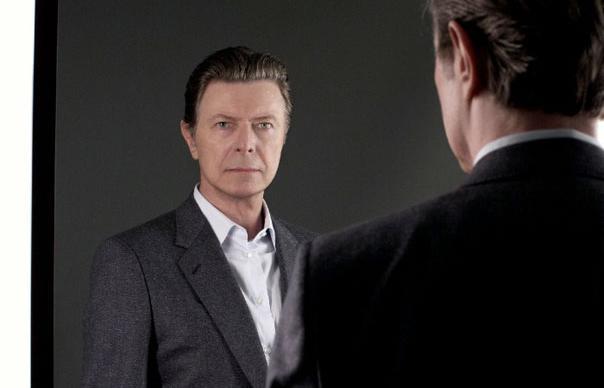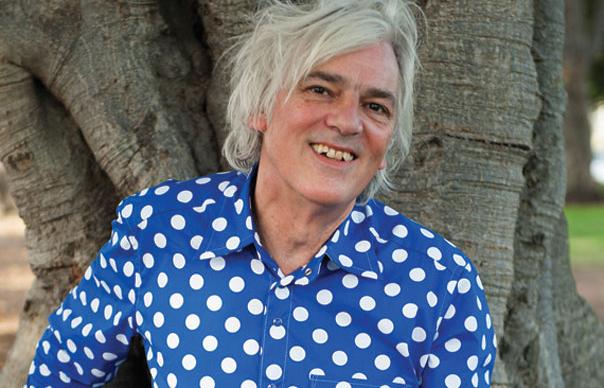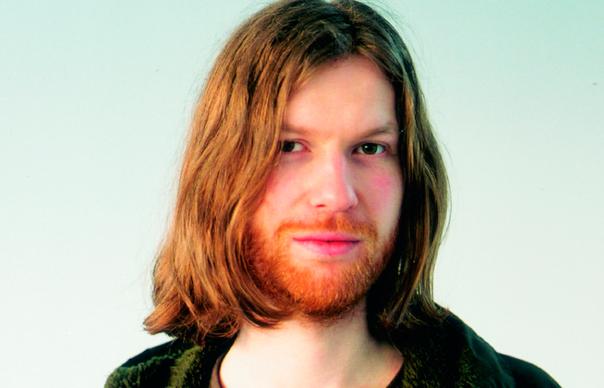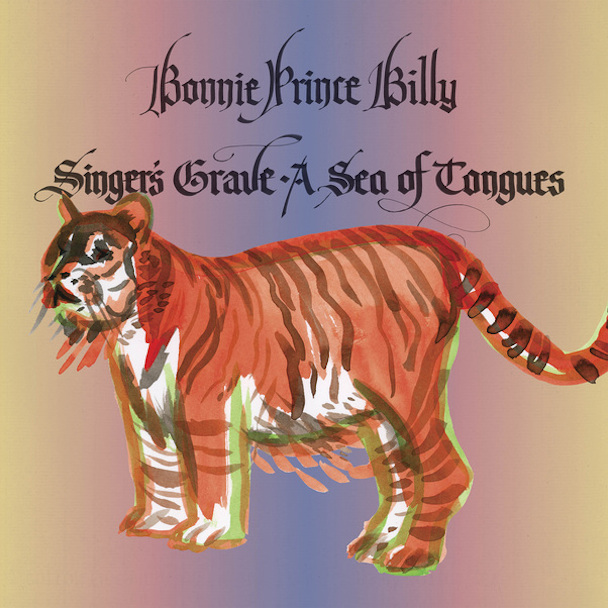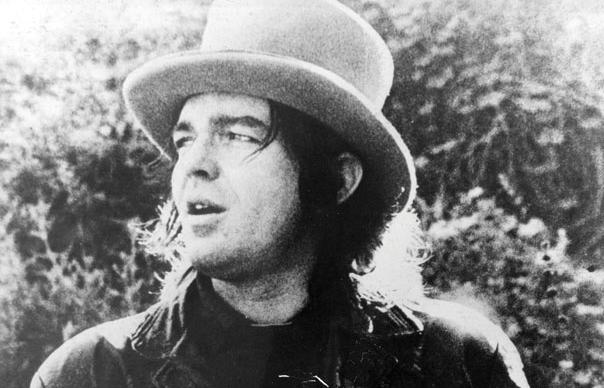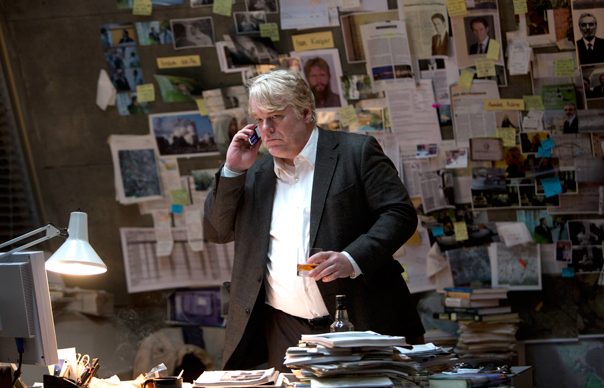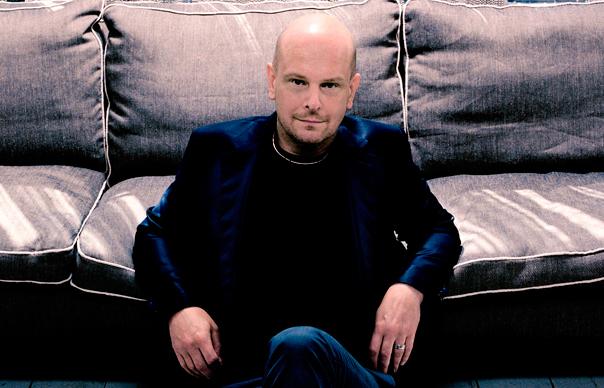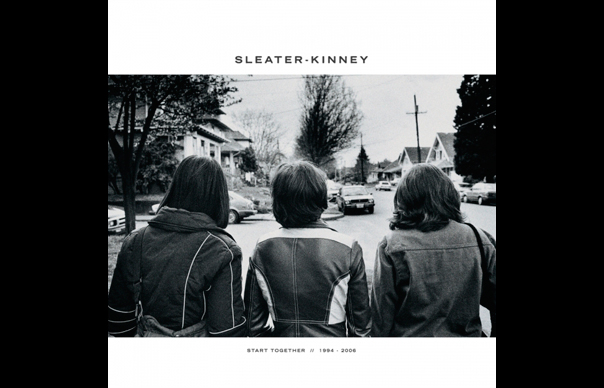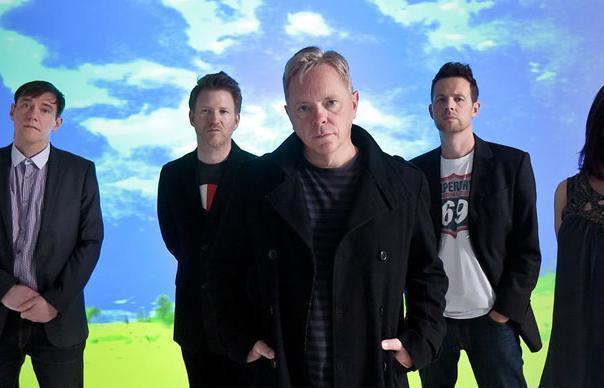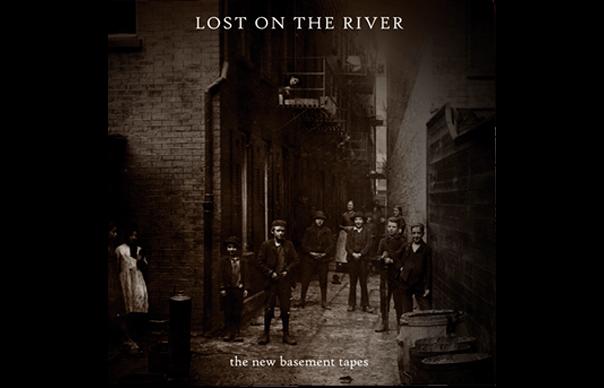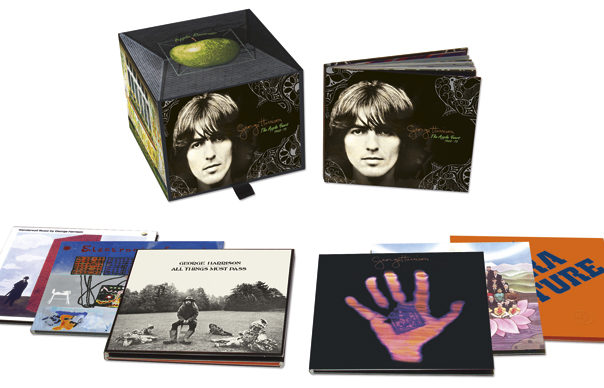Robert Fripp showcases the revitalised King Crimson, complete with a brand new, three-drummer lineup, at their first show in Albany, New York, on September 9. In this feature from Uncut’s July 2012 issue (Take 182), Rob Young asks Fripp and many of his former bandmates how they gave birth to a bright and extravagant series of albums and – inadvertently – to a whole new genre: prog rock. Surprising, desperate – and shocking…
Even Jimi Hendrix was taken aback!
________________
“There was something completely other surrounding this group,” Robert Fripp has said of King Crimson’s early years. “I don’t believe we went from failure to international success in nine months without help from somewhere.” Indeed, King Crimson’s status as a British rock institution has lasted a great deal longer than nine months. Although hard to keep in focus – they’ve undergone shifting lineups, stylistic switchbacks and periodic rests – Crimson has been reactivated throughout the 1980s, ‘fractalised’ into several discrete ‘ProjeKcts’ in 1997, while one incarnation was active as late as 2009. Although Fripp remarked online in December 2010 that the King Crimson switch is currently set to ‘off’, there’s a sense that the power has never definitively been disconnected.
King Crimson was formed in November 1968, out of a previous group Fripp had with two friends from his Dorset schooldays, the brothers Michael and Peter Giles. Formed in the Bournemouth area in summer 1967, the trio caught the same wave of Pythonesque, tea shoppe psych as the Bonzo Dog Doo-Dah Band. Their album The Cheerful Insanity Of Giles, Giles & Fripp – also featuring the vocals of ex-Fairport Convention singer Judy Dyble and former Army bandsman Ian McDonald on woodwinds and saxophone, had not sold well, and their label Deram was growing impatient.
“The band was a strange outfit, I must say,” recalls Greg Lake, who had shared a guitar teacher with Fripp back in Dorset and was then in a group called The Gods. “Kind of a comedy group. But the label weren’t happy about this, because they weren’t selling any records, so they said to Robert, ‘If you want to stay on the label you’re going to have to become commercially relevant. Get a lead singer and start to make records that people could play.’ So Robert called me up and said, ‘Would you consider joining us?’ I knew Robert, he was a great player, and we got on well as great friends, and I knew Mike Giles, because he was from the same area. They were all classy players.
“Robert said, ‘Oh, just one thing: it would be good to keep the band down to a four-piece. Do you think you could play bass?’ I said, ‘No problem’ – I didn’t think about it. Four strings instead of six – how hard can that be? Of course, I very quickly learned the bass is nothing like guitar, and it’s an art form all of its own. And that came as a bit of a shock to me. I had to swot up on bass playing, which I did very rapidly.”
________________
At the time, Fripp and the Giles brothers were living in a flat on Brondesbury Road in northwest London. Ian McDonald introduced a friend, Pete Sinfield, a young starry-eyed poet who had spent a good portion of the early ’60s bumming around the North African hippy trail and had tried to start a band of his own, without success. Sinfield became the invisible fifth member, who ended up writing the lyrics, assisting with production, driving the tour van, and generally conceptually steering these four tempestuous personalities towards achieving a sonic and conceptual whole: to “diplomatically support the best idea in the room”, as he puts it.
“I was the one who wrote all the poems and had the strange bohemian background,” he says. “Robert came from a staid solicitor’s family in Dorset. He kept his paperback books in plastic bags, and mine were scattered all over the place. But for two and a half years, the combination worked.
“When Greg was asked to join, it was still stuck in Giles, Giles & Fripp land, all very clever-clever. Ian and I introduced an element of songwriting – something of weight, flamboyant Gothic weight. Greg’s talent and enthusiasm is like a big pair of bellows. There’s this small spark and he’ll puff away and suddenly he’s made it into a flame and added some harmonies to it. Mike would put some drums behind it, I’ll stick a word or two on it, and Fripp would calmly say, ‘I have an idea for that’, and drag something out of his 20,000 years of guitar practice.”
In January 1969, the as yet unnamed group installed themselves in a rehearsal space in Fulham Palace Road, and set about writing the material that would become their first album. “When we started playing it was immediately apparent there was something special,” recalls Lake, who became the group’s vocalist. Sinfield says: “Before, they couldn’t sing very well, but Greg had a beautiful tenor voice, which inspired me to give it some words for him to sing.” It was Sinfield who suggested the name, based on the character from his lyric “In The Court Of The Crimson King”. “It wasn’t Beelzebub,” he insists, “it was just sort of the dark forces of the world.” Like other band names of the time – Led Zeppelin, Black Sabbath – it also just had a memorable timbre. “You get all this lovely alliteration, and you make up the character afterwards.”
________________
The group dynamics were unconventional and potentially unstable – Fripp, the notional leader (or at least the constant), only played guitar, with vocalist Lake, and later John Wetton, inevitably perceived as the ‘frontmen’. But this eccentric constitution was integral to the group’s peculiar energies. “It very quickly became apparent,” affirms Lake, “that the band was so unusual, with all these components making up this chemical. It was a chemistry: five individual people, fine musicianship, with quite an original approach to rock. The style that we really developed was what people call progressive music, but I don’t think really we were the first, because Sgt Pepper to me was a progressive record. But in any case, that was how we began, and it was apparent that the effect King Crimson would have would be to shock the audience. People would be shocked. I remember seeing Jimi Hendrix one night at the Revolution club, and he was taken aback! It’s when everybody’s listening that one fires another, and it escalates. You can be talking about milliseconds of feel-and-response time. You have to be good enough to do that, and the players in King Crimson were all good enough to do that. And that was the added power that the band had – it was like a brain, a living brain.”
Sinfield adds, “It was 25 years of experience all crammed in, and ideas and frustrations all coming out. That is bound to generate a bit of heat and excitement. Without friction you don’t get heat!”
For his part, Fripp has outlined the chief ingredients in Crimson’s formula: “Musical skill, commitment, desperation, surprise, Barry Godber’s album cover, the time of the world, technology, the Ford Transit van, a patron in Angus Hunking [Ian McDonald’s uncle, who loaned them the money to buy a vehicle, PA and Mellotron], management and record company, the unstoppable growth of the record industry between 1968 and 1978, the widespread social acceptance of drug use. But above all, it was the presence of the Good Fairy.”
The first two albums, In The Court Of The Crimson King and In The Wake Of Poseidon, feel more akin to the prevailing folk-rock and romantic pastoral psych of the moment, than the blazing progressive chow-downs of their later years (early sets included Donovan’s “Get Thy Bearings” and The Beatles’ “Lucy In The Sky With Diamonds”). McDonald’s Mellotron, reeds and vibes add lush, organic texture, while Michael Giles’ drumming fills the galleon’s sails with epic, propulsive motion. Yet while the musicianship is stellar, from the long improvised coda to “Moonchild” to the Renaissance-fair ambience of “Cadence And Cascade”, you could sense a feral energy coiled inside. Witness “21st Century Schizoid Man”, the opening track on …Crimson King, which started with Sabbath-like gouging chords and boiled over into a frantic, toe-curling improvisation. It was this track, filled with Sinfield’s paranoid lyrics (“something that gathered all the madness of the world”, as he puts it), that resonated so well with Barry Godber’s unforgettable sleeve painting of a screaming, gurning face. At the Fillmore West on December 15, 1969, the last night of their US tour, they dedicated the song to Spiro Agnew.
That night proved fateful. Giles and McDonald, fearful of flying and sick of the tour grind, announced they wanted out. Lake, meanwhile, had a meeting in the hotel bar that changed his career, and altered the course of British progressive rock. “On the same bill that night was a group called The Nice, and I met Keith Emerson in the hotel after the show. He said, ‘How’s Crimson doing?’ I said, ‘Just breaking up.’ He said, ‘Well, I’m just finishing with The Nice – maybe we could form a band together?’ And that was that.” The seeds of Emerson, Lake & Palmer – and thus a whole new era of progressive rock – were sown that night.
________________
Lake briefly returned in March 1970 to provide the vocals on Crimson’s In The Wake Of Poseidon, whose sleeve painting by Tammo de Jongh was patterned with floating heads, based on the theories of personality archetypes of American psychiatrist Richard Gardner. Sinfield: “I had been interested in esoteric ideas, and mystery, magic and circuses; it was in my family. I had a grandfather who was a member of the Golden Dawn… We had a German housekeeper who was a member of [trapeze artists] The Flying Wallendas. My mother used to take me to the Magic Circle. All this was going on around me, and I read esoteric books, sci-fi…”
Poseidon was also seasoned with free jazz fragments, courtesy of pianist Keith Tippett and saxophonist Mel Collins, who continued as part of the lineup that produced Lizard (1970) and Islands (1971). This incarnation, with Ian Wallace on drums and Boz Burrell on bass and vocals, developed into an undisciplined sprawl which, coupled with Sinfield’s mellow landscapes, sat at odds with Fripp’s increasingly craggy sound. “Formentera Lady”, the opening track on Islands, marked the tipping point. “Robert works in a very strict, concrete, disciplined way,” explains Sinfield, “Boz and Mel were not the most disciplined of people… neither was I. I’d been to Spain, and was rather full of Mediterranean fields, warmth, dusty roads, sunsets… and wanted a softer, Ahmad Jamal/Miles Davis-y feel to the music, while Robert wanted to do [harder music]. I wanted something more relaxing. In that situation you start becoming disrespectful to your partner. And this was what happened. I started cutting him off, and he quite rightly got tired of that, to the point where he said, ‘One of us has got to go, and I’m not leaving.’” Having dismissed Sinfield, in spring 1972 Fripp folded away the group and sought out an entirely new cast of characters for Crimson’s next phase.
________________
Yes’ drummer at that time, Bill Bruford, was an unashamed Crimson fan and had followed the band’s progress “like a sick groupie”. When Fripp invited him to join the new lineup, tempting him with gifts of books about magic and hermetic philosophy, he bailed out of Yes like a shot. “I was aware [Crimson] had had a revolution and the blood was on the carpet and stuff, but I just read the list: percussion player Jamie Muir, who was kind of an avant gardist; John Wetton from Family who was the go-to bass player at the time; and [violinist] David Cross, who I didn’t know at all, and I said sign me up!” Wetton was yet another Bournemouth-born alumnus of Fripp’s school; pairing Bruford with Muir was an inspired choice: the latter emerged from London’s Free Improv scene alongside Derek Bailey and Evan Parker. His impressive arsenal of percussive devices, played with wild abandon, fitted perfectly into a group which was now including purely instrumental experimentation into their setlists.
“He’d come from the art world,” Bruford affirms, “and the world of new improvising, free atonal guys, and I was the new kid off the block with the fastest paradiddle in Kent. Muir wasted no time at all in pointing out to me – and this was my first great and only drum lesson really – that the music doesn’t exist to serve me; that I exist to serve the music. I’d been showing off until then.” The first recording from this ensemble was Larks’ Tongues In Aspic, a record described by another Ian MacDonald – Assistant Editor of NME – as “a challenging record, but its rewards are very substantial, even if you’d have to be an odd mixture of a person to like it all without reservation.”
That was because it was an odd mixture of a band – pitched somewhere between epic rock, total freedom and the kind of funky electric fusion perpetrated at the time by Miles Davis, Mahavishnu Orchestra and Herbie Hancock.
“‘Larks’ Tongues’ was Jamie’s phrase,” reveals Bruford, “for a diamond in a bit of roughage – apparently it’s an oriental delicacy. It implied something lovely in a whole bunch of nothing much. Which was this fragile melody in the middle of the aural roughage. Starless And Bible Black [1974] is a phrase, of course, by Dylan Thomas, that I appropriated, probably illegally – as it just seemed to be absolutely the sound that the group was making, or trying to make.”
The group, though, remained volatile, “One of those groups that if it was still there at breakfast the next morning you considered yourself lucky,” as Bruford puts it. Muir absented himself out just before the release of Larks’ Tongues…: “He went off to a monastery or something. Suddenly I was in control of all the percussion and I adopted half of Jamie’s stuff – gongs, thundersheets, metal plates…”
Wetton confidently took over the vocalist’s role, and introduced an old buddy, Richard Palmer-James, as the group’s new lyricist. “On Larks’ Tongues… they were all done to order, the three lyrics,” Wetton explains. “I sent him over a cassette – he lived in Munich by then – with the tune jotted down on piano, and voice, and back would come the lyric, absolutely finished, watertight, and printed out.”
This group sharpened their razor-edge riffage across Starless And Bible Black and Red (recorded as a trio after Cross bowed out), both worlds away from the woolly outpourings of prog peers like ELP, Genesis and Yes.
“For me that entire period smells of a Holiday Inn,” complains Bruford. “The thing became so aggressive, I think, because of endless US tours: here you are in the back of a shed. I know David Cross wasn’t happy with it, and me and Wetton turned into the ‘flying brick wall’, which you had to either duck or play with. And I kind of regret that. It took me a long time to learn to be just a whisker more subtle on the drum kit.” “We were doing endless tours of America,” adds Wetton, “and when you’re on in front of Ten Years After or Iron Butterfly, you have to hit ’em hard, and show them you’ve got some kind of muscle. In a 15,000-seat arena, there’s no room for pussyfooting.”
Wetton’s phrase is a reminder that Fripp’s sights were also pointed in different directions: his ongoing experimental collaboration with Brian Eno had begun two years earlier with No Pussyfooting, and he had produced Matching Mole and jazz outfits Centipede and Ovary Lodge. Under the influence of mystical thinkers like Gurdjieff and Ouspensky, Fripp began to abandon control of the group, with terminal results. Red, released at the close of 1974, was the last Crimson release until 1981’s wholly different Discipline. It was certainly the end of the line of evolutionary development that had begun in 1969. “This was a band with muscle, sensitivity, different colours,” mourns Wetton. “I wanted it to go on forever. But it didn’t!”
“You grope along in the dark,” adds Bruford, “with a candle and a bit of string, hoping to find your way along a dark corridor – that’s a bit like how it felt.”



